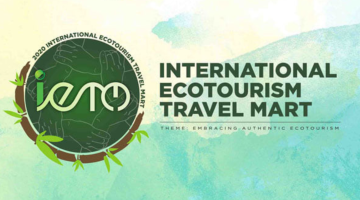POSTED Mar 29, 2022 - 12:50 PM
The Profitability Of Going Plant-Based
Trends show there is a growing demand for plant-based food in markets globally. This is proof that shifting to meat-free is both sustainable and profitable
“Plant-based” has become a buzzword recently, but its origins trace as far back as the 1980s. First coined by Cornell University biochemist Thomas Colin Campbell, the plant-based diet was—and still is—seen as a way to lift pressure off the environment brought about by human’s massive consumption of meat.
There has been a boom in plant-based dining as well as vegan and vegetarian diets in recent years. New Food, a food and beverage industry magazine in the United Kingdom, notes that veganism has “gone mainstream” in the last five years. Meanwhile plant-based dining, which was touted as “2018’s trend of the year” by international restaurant consultants Baum + Whiteman, also experienced a more widespread boom in 2020.
Food research firms and companies are also seeing an increase in the market value of plant-based food. According to the Plant Based Foods Association and Good Food Institute, the market is now valued at $5 billion, while Meticulous Research pegs the global meat substitute market to reach an estimated value of $17.5 billion by 2027.
While a percentage of diners attribute their change in diet to ethics—as in a way to save and protect animals, there are also many consumers who choose to shift to meat-free diets as part of living a healthier and more sustainable lifestyle.
Trends
The pandemic sped up the growth of many business and industry trends that have always been there or were just on the brink of breaking out, forcing them into the mainstream—from e-commerce and cashless transactions to doubling up on the consumer experience and the greater focus on health and wellness.
2020 saw vegan and plant-based ingredient alternatives thrive. Forbes notes 2020 as the year of the vegan chicken and projected 2021 as the year for vegan fish. The global success of Oatly[1] , which had a recorded value of $2 billion in July 2020, also serves as a case study in the potential success of milk and animal byproduct alternatives.
But more than just being plant-based, there are a number of factors that contribute to plant-based brands’ success.
New Food, in their analysis of Oatly’s growth, noted how the choice of ingredient—oats—satisfied all the important factors for food substitutes: texture, taste, and protein content. The Vegetarian Society also notes meat-free mimics as a key plant-based food trend to watch in 2021. Meanwhile, among the meat-free alternatives, tofu was noted as the fastest growing option.
These trends have been backed by numbers. The Ellen McArthur Foundation (EMF), in their “Cities and Circular Economy for Food” report, pushes for a shift to a new model in the economy for food: “Multiple trends suggest now is the time to shift to a new model for food,” they write. “People in OECD (Organisation for Economic Co-operation and Development) countries are eating less meat and shifting towards more plant-based protein sources. In the US, the demand for non-dairy beverages has grown by 61 percent over the past five years.”
While the numbers from developing countries like the Philippines have yet to seem as encouraging, social listening may point to more optimistic ideas. The vegan movement is growing in popularity in recent years. Alongside the establishment of small vegan and/or plant-based businesses, more global food brands are beginning to offer plant-based meat options in their Philippine menus.
Sales
The Good Food Institute reported that international sandwich chain Pret A Manger “saw double-digit sales increases of its vegetarian items in 2016 which led to the 2017 launch of 20 new plant-based dishes.” Meanwhile, when gourmet burger restaurant chain Umami Burger started offering a plant-based burger in 2017, it has since made up for a third of its burger sales.
Another example of an international food company experiencing continuous success in its foray into plant-based meat is KFC. When they first launched their “Imposter Burger” in the UK in 2019, they reportedly sold 500 percent more than their average menu launches, reports Vegconomist. In the same year, they tested plant-based chicken offerings in Atlanta, Georgia in the United States, where they sold out in five hours. Then in 2020, KFC China’s test for vegan chicken nuggets was also received well, with pre-sale coupons for the first selling day all out within an hour.
Sustainability
Seeing these trends and this growing interest in plant-based food, brands and businesses can now come in to add solutions.
More than just driving a shift to plant-based, businesses must also take into consideration the role they play in changing and shaping the landscape of food consumption. Now more than ever, businesses must start the task of reorienting our food systems into one that is more regenerative and ultimately circular.
The EMF backs this, emphasizing the importance of designing and marketing healthier food products—not just from a nutritional standpoint but from production as well.
“With the majority of animal protein production negatively impacting the environment today, there is a strong consensus that meat consumption needs to be reduced. To facilitate this shift, there is an urgent need and great opportunity to provide consumers with plant-based protein options as a delicious alternative,” they write.
EMF also notes in “The Big Food Redesign” study that more than just ensuring that our food sources do not negatively impact the environment, it’s important to transform the whole food system. The key players for this are fast-moving consumer goods (FMCG) businesses and food retailers.
Because FMCGs and food retailers drive most of the agricultural land use (in the EU and UK this amounts to around 40 percent), having them shift to a more nature-positive food system will be most effective.
To demonstrate how big of an opportunity food redesign can present to businesses, EMF cited sales of organic food and drink (~USD 129 billion in 2019) and the faster growth of sustainable brands (Unilever’s Sustainable Living Brands were reported to have grown 69 percent faster than the rest of the business).
To start this shift, businesses can create a demand for more diverse ingredients—using and mixing more varieties of plants and livestock in their products, going beyond the current rotation of crops. This is also seen to be beneficial to consumers as it will give them a wider range of flavors and nutritional profiles. Local livelihoods and cultures will also be positively impacted, as food traditions and cultural food heritage can be preserved thanks to the use and development of local varieties of ingredients and crops.
For more information and news on business visit CREATE Philippines and IFEXCONNECT
Read more

A bagful of hope for Mother Earth CITEM partners with Oikos Philippines
Only a few weeks left before IFEX Philippines 2024 brings the food community a salu-salo to find the... Learn More

Healthy snacking as a wellspring for sustainability
Re-imagining nutrition and sustainability in today’s instant gratification society Learn More

CITEM joins world’s 1st eco-tourism travel mart
DTI's export promotions arm eyes to showcase sustainable brands Learn More

Making recycling accessible is this PH brand's business goal
by Daniel Asido Learn More

